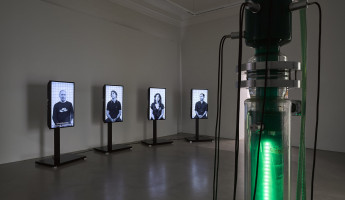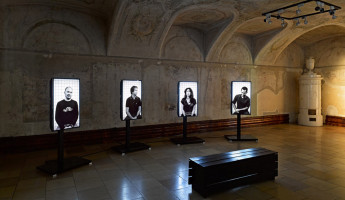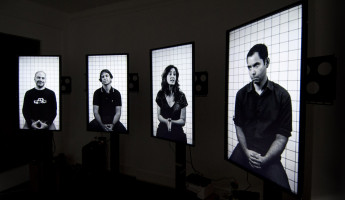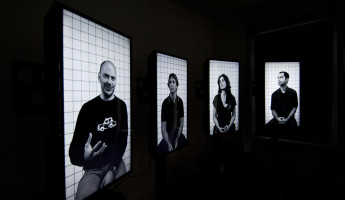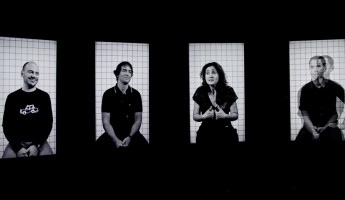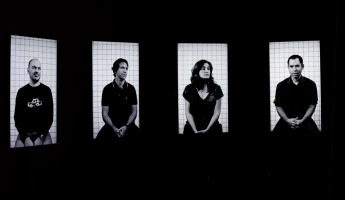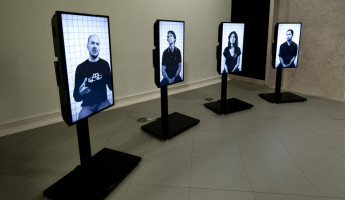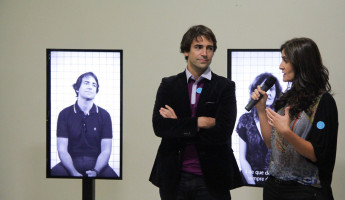the conversation
four channel video installation, 2013, 33’, loop
intro
the conversation that never took place, 2013
In the video installation the conversation that never took place (2013), Herwig Turk moves his focus to four molecular biologists, who are individually interviewed, and shown on four large monitors, as if they were having a conversation with each other. The experts’ conversations are, on the one hand, about their struggle with the scientific world view, on which their research achievements are based, and on the other, about their ethical convictions and personal motivations, revealing them as individuals in the highly regulated field of research, which is not only formalised and regulated through protocols, but is also based on a collective thought style – in the sense of Ludwik Fleck – within their scientific community. It takes great effort to scrutinise the thought style of their collective, and further develop it, and to realise innovation and acquire new knowledge.
installation
top left:
Landscape = Laboratory, MMKK Museum Moderner Kunst Kärnten, Klagenfurt/A 2016
photo: © Gebhard Sengmüller
top right:
Quasicrystals or the Harmony of Illusion, Exhibition center Heiligenkreuzerhof, Vienna/A 2014
photo: © Gebhard Sengmüller
bottom left and right:
The conversation that never took place, Science Pavilion, Lisbon/Pt 2013
photos: © Edmundo Diaz
text
The conversation that never took place, 2013
In the video installation the conversation that never took place (2013), Herwig Turk moves his focus to four molecular biologists, who are individually interviewed, and shown on four large monitors, as if they were having a conversation with each other. The experts’ conversations are, on the one hand, about their struggle with the scientific world view, on which their research achievements are based, and on the other, about their ethical convictions and personal motivations, revealing them as individuals in the highly regulated field of research, which is not only formalised and regulated through protocols, but is also based on a collective thought style – in the sense of Ludwik Fleck – within their scientific community. It takes great effort to scrutinise the thought style of their collective, and further develop it, and to realise innovation and acquire new knowledge.
